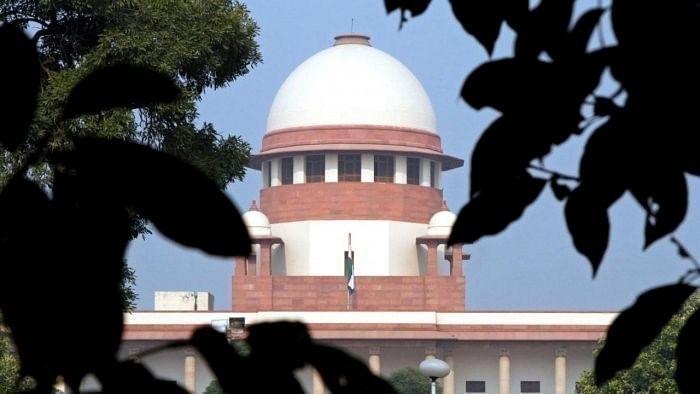
The Supreme Court of India.
Credit: PTI File Photo
New Delhi: The Supreme Court has said that the high court must satisfy itself about genuineness of settlement between the victim and the accused, before entertaining a plea for quashing the criminal proceedings arising out of non compoundable offences like rape.
A bench of Justices Abhay S Oka and Augustine George Masih said the petition for quashing cannot proceed further without the court being satisfied with the existence of a genuine settlement.
"If the court is satisfied about the existence of a genuine settlement, the other question to be considered is whether in the facts of the case, the power of quashing deserves to be exercised," the bench said.
Even if an affidavit of the victim accepting the settlement is on record, in cases of serious offences and especially against women, it is always advisable to procure the presence of the victim either personally or through video conference so that the court can properly examine whether there is a genuine settlement and that the victim has no subsisting grievance, the bench added.
In its November 5, 2024 order, the court allowed a plea by a woman rape victim against the Gujarat High Court's order of September 29, 2023.
The high court quashed the criminal proceedings lodged by her against her employer for offences under under Sections 376(2)(N) and 506 of the IPC and Section 3(1)(R), 3(1)(w) and 3(2)(5) of the Scheduled Castes and Scheduled Tribes (Prevention of Atrocities) Act, 1989 on a plea made by the accused on the basis of settlement and payment of Rs three lakh to the woman's husband.
The woman's counsel claimed she was illiterate person and thumb impressions have been taken on the typed affidavits in suspicious circumstances without explaining the contents to her.
"When illiterate persons affirm such affidavits by putting their thumb impressions, usually, the affidavit must bear an endorsement that the contents of the affidavits were explained to the person affirming the same," the bench said.
After noticing the absence of such an endorsement, the high court ought to have directed the appellant to personally remain present before the court so that the HC could have verified whether the appellant had put her thumb impressions on the affidavits after she was informed about the contents of the affidavit and after she had fully understood the contents of the affidavit, the bench added.
The bench set aside the order and remanded the matter back to the high court, after holding the judgment and order on quashing the proceedings cannot be sustained.
In this case, the bench said, two affidavits were executed on the same day, which should have been one more reason for the HC to be very cautious before acting upon the affidavits, the court said.
"We are, therefore, inclined to remand the case to the High Court with a direction to the appellant to remain present before the High Court on the date fixed by this court. The High Court will allow the appellant to explain her position vis-`a-vis the stand taken by the second respondent (accused) about the settlement," the bench said.
The bench also said the high court would be well within its powers to order an inquiry to be held by a judicial officer about the manner in which the affidavits have been executed and on the question of whether the thumb impressions of the appellant were taken on the affidavits without explaining to her the contents of the affidavits.
"If the High Court finds that there was, in fact, a settlement arrived between the appellant and the second respondent, the High Court will have to consider the question of whether the power under Section 482 of CrPC or Article 226 of the Constitution can be exercised to quash the criminal proceedings based on compromise," the bench said.
The woman was aggrieved with the HC's order which proceeded to quash the criminal proceedings with a direction that the compensation received by the appellant under the Atrocities Act should be refunded to the concerned authority.
